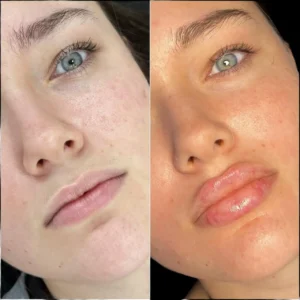Dental health is an essential aspect of overall well-being, affecting not only your smile but your general health. One common yet severe oral health issue is a dental abscess. A dental abscess is a localized infection that can occur at different sites within the tooth, including the pulp, the surrounding tissue, or the gums. If left untreated, it can lead to severe complications, including tooth loss and the spread of infection to other areas of the body. In this article, we’ll explore what dental abscesses are, how they develop, and the best ways to treat and prevent them.
What Is a Dental Abscess?
A dental abscess is a pocket of pus that forms inside a tooth or in the surrounding gum tissue. It is typically caused by a bacterial infection that results from untreated tooth decay, gum disease, or a cracked or damaged tooth. The bacteria invade the soft tissue of the tooth, causing inflammation and infection. Over time, this leads to the formation of pus as the body tries to fight off the infection.
There are three main types of dental abscesses:
-
Periapical Abscess: This type of abscess forms at the tip of the tooth’s root and is caused by an untreated cavity that allows bacteria to penetrate the pulp, the soft tissue inside the tooth.
-
Periodontal Abscess: This abscess occurs in the gum tissue next to a tooth, often as a result of untreated gum disease (gingivitis or periodontitis).
-
Gingival Abscess: This type of abscess occurs in the gums, usually due to injury or infection in the gum tissue itself.
If a dental abscess is not treated promptly, it can cause severe pain, fever, and even life-threatening complications, such as sepsis.
Symptoms of a Dental Abscess
The symptoms of a dental abscess can vary depending on the severity and location of the infection. Common symptoms include:
-
Severe Tooth Pain: The pain is typically sharp, throbbing, and constant, often increasing when chewing or touching the affected tooth.
-
Swelling in the Gum or Face: You may notice a swollen area in your gums or face, which could be accompanied by redness and warmth.
-
Bad Breath or Unpleasant Taste: A foul-smelling odor or taste in the mouth can result from the pus that drains from the abscess.
-
Sensitivity to Hot or Cold: The infected tooth may become sensitive to temperature changes, making it difficult to eat or drink hot or cold foods and beverages.
If you experience any of these symptoms, it’s crucial to seek dental care as soon as possible to avoid further complications.
Treatment Options for Dental Abscesses
Treating a dental abscess typically involves addressing the infection and alleviating pain. The treatment methods vary depending on the severity of the abscess and the health of the tooth. The following treatment options may be recommended by your dentist:
1. Drainage of the Abscess
The primary treatment for a dental abscess is draining the pus from the infection. Your dentist will likely perform this procedure by making a small incision in the abscess to allow the pus to drain out. This helps to relieve pain and reduce swelling. In some cases, the dentist may need to create a hole in the tooth to allow for proper drainage.
2. Root Canal Therapy
If the infection is deep within the tooth, a root canal may be necessary. During this procedure, the dentist will remove the infected pulp from inside the tooth, clean the root canals, and seal them to prevent further infection. This is a common treatment for a periapical abscess and can save the tooth from extraction.
3. Tooth Extraction
If the tooth is severely damaged and cannot be saved, the dentist may recommend extracting the affected tooth. This is usually the last resort when other treatments have been unsuccessful or when the tooth is beyond repair.
4. Antibiotics
In some cases, your dentist may prescribe antibiotics to help control the infection. This is particularly common if the infection has spread beyond the tooth and into surrounding tissues or if you have a weakened immune system. Antibiotics alone, however, are not enough to treat a dental abscess, and further procedures, such as drainage or root canal therapy, will still be necessary.
The Role of Dental Care Tips in Preventing Abscesses
Preventing a dental abscess is always better than treating one. Following a proper oral care routine and maintaining good dental hygiene can significantly reduce the risk of developing an abscess or other dental problems. Here are some essential dental care tips to keep in mind:
1. Brush Your Teeth Twice a Day
Brushing your teeth at least twice a day with fluoride toothpaste is one of the most effective ways to prevent cavities and gum disease. Be sure to brush all surfaces of your teeth, including the back molars, where food and plaque can accumulate. Don’t forget to replace your toothbrush regularly to ensure optimal cleaning.
2. Floss Daily
Flossing helps remove food particles and plaque from between your teeth that your toothbrush may not reach. By flossing daily, you can prevent plaque buildup, which can lead to tooth decay and gum disease.
3. Regular Dental Checkups
Routine dental visits are crucial for maintaining healthy teeth and gums. Dentists can spot potential issues like cavities, gum disease, or early signs of an abscess before they become serious problems. Most people should visit the dentist for a checkup every six months.
4. Eat a Balanced Diet
A balanced diet rich in vitamins and minerals supports overall oral health. Eating foods high in calcium, such as dairy products, can help strengthen your teeth, while foods rich in vitamin C, like citrus fruits, support healthy gums. Avoid sugary snacks and drinks, as they can contribute to tooth decay.
5. Avoid Smoking
Smoking weakens your immune system and makes it more difficult for your body to fight infections. It also increases your risk of developing gum disease and oral cancer. Quitting smoking is one of the best things you can do for your oral health.
6. Use Mouthwash
Using an antimicrobial mouthwash can help kill harmful bacteria in your mouth and reduce the risk of gum disease and cavities. Mouthwash can also freshen your breath and provide additional protection against oral infections.
7. Protect Your Teeth
If you play contact sports, wearing a mouthguard can protect your teeth from injury. Additionally, if you grind your teeth at night, using a nightguard can prevent tooth damage and reduce the risk of developing an abscess from cracked teeth.
When to See a Dentist
If you suspect you have a dental abscess, don’t wait for the symptoms to worsen. The sooner you seek treatment, the better your chances of preventing serious complications. In addition to pain and swelling, other signs that you may need to see a dentist include:
-
Difficulty swallowing or breathing
-
Swelling in your neck or jaw
-
Fever
-
Red or tender gums around a specific tooth
Prompt treatment is crucial in preventing the spread of infection to other parts of the body, so make sure to visit your dentist at the first sign of trouble.
Conclusion
A dental abscess can be a painful and serious condition, but with timely treatment and preventive care, you can protect your oral health and prevent further complications. Following dental care tips, such as brushing and flossing regularly, eating a balanced diet, and scheduling routine dental visits, will go a long way in preventing abscesses and maintaining a healthy smile. Always remember, if you experience any signs of an abscess or other dental issues, don’t hesitate to consult with a dentist for proper diagnosis and treatment.


